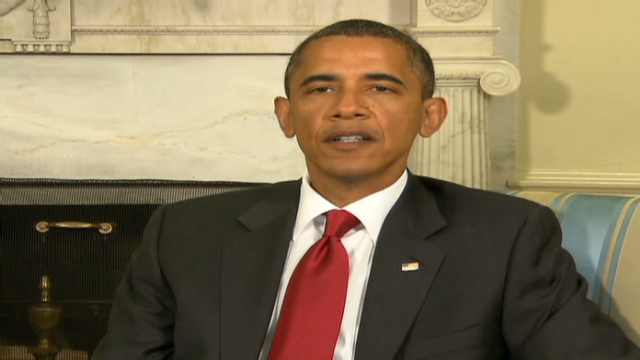 Washington (CNN) -- Stressing the unbreakable ties between their nations, U.S. President Barack Obama and Israeli Prime Minister Benjamin Netanyahu called Tuesday for direct talks between Israel and the Palestinians while agreeing that the international community is strengthening efforts to isolate Iran over its nuclear ambitions.
Washington (CNN) -- Stressing the unbreakable ties between their nations, U.S. President Barack Obama and Israeli Prime Minister Benjamin Netanyahu called Tuesday for direct talks between Israel and the Palestinians while agreeing that the international community is strengthening efforts to isolate Iran over its nuclear ambitions.
Obama, Netanyahu emphasize strength of U.S.-Israel ties
By-CNN
International News
00:07
Thursday ,08 July 2010

The two leaders spoke to reporters after meeting for more than an hour at the White House, twice shaking hands for the cameras as part of an effort to dispel the notion that relations between the United States and Israel have frayed in recent months.
Obama said the bond between the United States and Israel is "unbreakable" and added that his country remains "unwavering in our commitment to Israel's security." Netanyahu chose to paraphrase American humorist Mark Twain by noting that reports of the demise of U.S.-Israeli relations "aren't just premature, they're just flat wrong."
The meeting, their fifth since Netanyahu took office last spring, focused on revitalizing the Middle East peace process as well as discussing other issues, including efforts to prevent Iran from developing a nuclear arsenal.
Both Obama and Netanyahu stressed the importance of moving toward direct talks between Israelis and Palestinians. Presently, Netanyahu and Palestinian Authority President Mahmoud Abbas aren't talking directly, but communicating through U.S. Middle East envoy George Mitchell, who serves as a go-between for negotiations.
Netanyahu said Tuesday that he is ready for direct talks -- a step he has repeatedly endorsed in the past -- and indicated that progress in the peace process is coming.
"The president and I discussed concrete steps that could be done now -- in the coming days, in the coming weeks -- to move the peace process further along in a very robust way," Netanyahu said.
Abbas has refused to meet with Netanyahu until Israel promises to stop building settlements, but said last month after meeting with Obama that direct talks were the goal.
Israel's settlement policy has become a friction point between Israel and the United States, with relations reaching a low point in March when Israel announced plans during a visit by Vice President Joe Biden to construct more than 1,000 new houses in East Jerusalem. The announcement outraged the Obama administration and led to the Palestinians' withdrawing from agreed-upon indirect negotiations with Israel.
In a visit later in March to the United States, Netanyahu was presented with a set of concessions that the White House wanted to see Israel make in an effort to restart the negotiations.
Neither government detailed what the exact nature of the concessions were, but sources on both sides said a halt in East Jerusalem construction was among the demands from the Obama administration.
Neither leader mentioned settlements in their comments Tuesday or their responses to questions from reporters. However, Obama commended Israel for easing limits on goods going to Gaza, saying there had been "real progress on the ground" that was happening "more quickly and more effectively than many people anticipated."
The president said the United States wants to "ensure the people of Gaza are able to prosper economically while Israel is able to maintain its legitimate security needs in not allowing missiles and weapons to get to Hamas."
In May, Israel's controversial embargo blocking the flow of goods into Gaza turned deadly when Israeli forces stormed a vessel that was part of a Gaza-bound humanitarian flotilla, resulting in the deaths of nine Turkish activists.
Aside from Israeli-Palestinian relations, many Israelis worry about Iran's intentions with its nuclear program. Netanyahu noted that recent sanctions adopted by the U.N. Security Council are helping to delegitimize Iran's nuclear program.
The sanctions "have teeth" and "bite," Netanyahu asserted, noting that the United States also has adopted more of its own sanctions against Iran.
"How much do you need to bite is something I cannot answer now, but if other nations adopted similar sanctions, that would increase the effect," he said.


